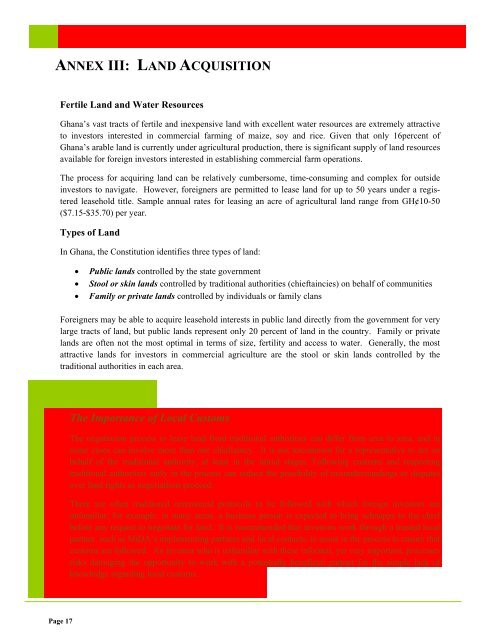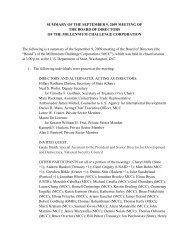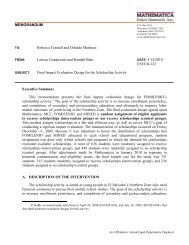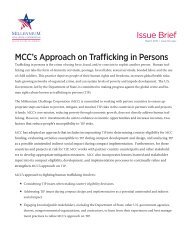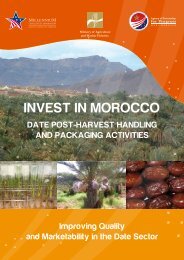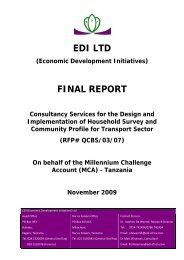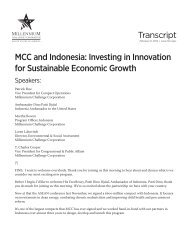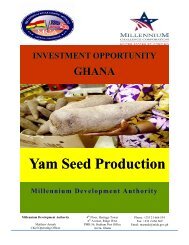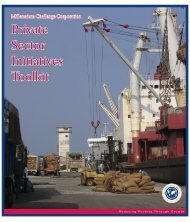Chili Pepper Production - Millennium Challenge Corporation
Chili Pepper Production - Millennium Challenge Corporation
Chili Pepper Production - Millennium Challenge Corporation
Create successful ePaper yourself
Turn your PDF publications into a flip-book with our unique Google optimized e-Paper software.
ANNEX III: LAND ACQUISITION<br />
Fertile Land and Water Resources<br />
Ghana’s vast tracts of fertile and inexpensive land with excellent water resources are extremely attractive<br />
to investors interested in commercial farming of maize, soy and rice. Given that only 16percent of<br />
Ghana’s arable land is currently under agricultural production, there is significant supply of land resources<br />
available for foreign investors interested in establishing commercial farm operations.<br />
The process for acquiring land can be relatively cumbersome, time-consuming and complex for outside<br />
investors to navigate. However, foreigners are permitted to lease land for up to 50 years under a registered<br />
leasehold title. Sample annual rates for leasing an acre of agricultural land range from GH¢10-50<br />
($7.15-$35.70) per year.<br />
Types of Land<br />
In Ghana, the Constitution identifies three types of land:<br />
�� Public lands controlled by the state government<br />
�� Stool or skin lands controlled by traditional authorities (chieftaincies) on behalf of communities<br />
�� Family or private lands controlled by individuals or family clans<br />
Foreigners may be able to acquire leasehold interests in public land directly from the government for very<br />
large tracts of land, but public lands represent only 20 percent of land in the country. Family or private<br />
lands are often not the most optimal in terms of size, fertility and access to water. Generally, the most<br />
attractive lands for investors in commercial agriculture are the stool or skin lands controlled by the<br />
traditional authorities in each area.<br />
Page 17<br />
The Importance of Local Customs<br />
The negotiation process to lease land from traditional authorities can differ from area to area, and in<br />
some cases can involve more than one chieftaincy. It is not uncommon for a representative to act on<br />
behalf of the traditional authority, at least in the initial stages. Following customs and respecting<br />
traditional authorities early in the process can reduce the possibility of misunderstandings or disputes<br />
over land rights as negotiations proceed.<br />
There are often traditional ceremonial protocols to be followed with which foreign investors are<br />
unfamiliar; for example, in many areas, a business person is expected to bring schnapps to the chief<br />
before any request to negotiate for land. It is recommended that investors work through a trusted local<br />
partner, such as MiDA’s implementing partners and local contacts, to assist in the process to ensure that<br />
customs are followed. An investor who is unfamiliar with these informal, yet very important, processes<br />
risks damaging the opportunity to work with a potentially beneficial partner for the simple lack of<br />
knowledge regarding local customs.


